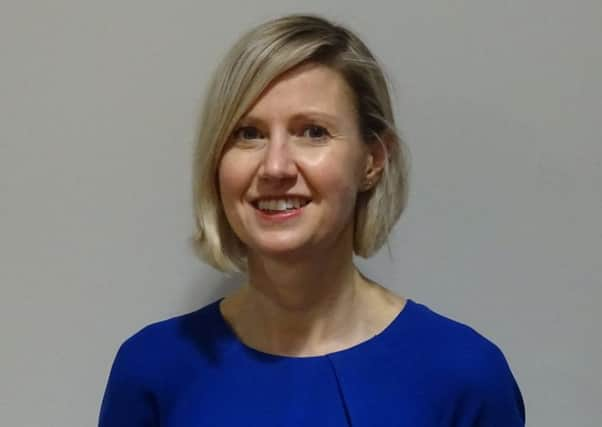Scots law of succession treats joint death as one – Lindsay MacEwen


The question of who dies first can often have consequences in relation to who inherits an estate, but what happens when a couple die at the same time? While the circumstances which can lead to this issue arising are almost tragic by definition, unfortunately that doesn’t prevent them from giving rise to family disputes.
This issue was at the heart of a recent High Court case in England, decided this month, where family members found themselves at loggerheads over a £300,000 inheritance.
Advertisement
Hide AdAdvertisement
Hide AdThe court had heard evidence that married couple, John Scarle, 79, and his wife Ann Scarle, 69, were found dead together in their home in Leigh-on-Sea, Essex, in October 2016. Step-sisters Ann Winter and Deborah Cutler were the respective children of each spouse from previous marriages and, according to the law, the one whose parent survived the longest would inherit the couple’s combined estate. However, the order of the deaths was not clear and was contested by the step-sisters.
In England & Wales, legislation sets out the presumption that when two people have died in circumstances rendering it uncertain which of them survived the other, the younger person is deemed to have survived the elder. The law in question, s.184 of the Law of Property Act dates back to 1925.
Applying this to the Scarles’ circumstances, it would mean that Ann would be deemed to have survived John. His estate would have then passed to Ann and subsequently to her biological daughter, Ms Cutler. However, each individual case is determined on its own facts and circumstances and a judge may be convinced, on the balance of probabilities, that the claimant has sufficient evidence to rebut the presumption of seniority on death.
Following evidence being led from various witness statements, Essex Police investigations and expert pathologists for both the claimant and the defendant, which centred on the relative differences in decomposition between the Scarles’ bodies, Judge Philip Kramer delivered his judgement on 13 August 2019 finding in favour of Ms Cutler and affirming the presumption set out in the legislation.
Judge Kramer stated that, as there was no conclusive evidence one way or the other, the claimant had not satisfied him as to the civil standard – proof on balance of probabilities – when determining the order of death and accordingly ruled that Mrs Scarle was presumed to have survived Mr Scarle.
Historically, the position in Scotland reflected that of England and Wales for those not married or in a civil partnership. However, the law was updated recently and, under s.9 of the Succession (Scotland) Act 2016, where it is uncertain in what order two or more people died it is now the case that neither person is treated as having survived the other.
Therefore, if the same set of circumstances had occurred in Scotland, each of John and Ann’s biological children would have been able to claim their legal rights on their respective parent’s estate as the law states that the spouses would have effectively died widowed.
The law now focuses on the intention of the testator rather than a potential for assets to pass to those who the deceased never intended to benefit. It is, of course, possible that Mr Scarle may have intended his step-daughter to inherit his entire estate, but no such intention was evident in any testamentary writing.
Advertisement
Hide AdAdvertisement
Hide AdThis case is yet another important reminder that the law of succession in Scotland does not directly mirror that of England & Wales, and many of the tales that make the UK national media are not necessarily applicable in this country. However, one thing that is just as important on either side of the Border is the value of making a Will and ensuring that it is kept up to date so that your wishes can be reflected in any eventuality.
Lindsay MacEwen is a Senior Associate in the Private Client team at Harper Macleod LLP